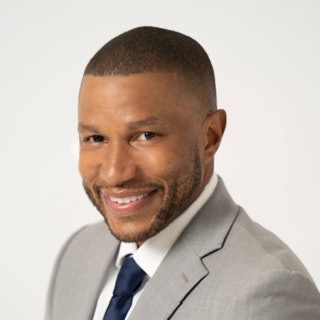In the words of Dr. Benjamin E. Mays, former President of Morehouse College, "he who starts behind in the great race of life must forever remain behind or run faster than the man in front." Unfortunately, this sentiment holds true for far too many children who enter Kindergarten already behind their peers in terms of literacy skills and too many continue to fall further behind by the time they reach the crucial third-grade mark.  Dr. Marcus A. Bright
Dr. Marcus A. Bright
Third grade is a pivotal milestone in a child's education. Up until this point, students are typically learning to read, but after the third grade, they are generally expected to be reading to learn. The implications of this educational gap are profound, as it greatly impacts a student's ability to comprehend and master content in the following years of schooling. A publication from the Council of Chief State School Officers titled, “Birth to Grade 3 Indicator Framework: Opportunities to Integrate Early Childhood in ESSA Toolkit” pointed out that “children who can read fluently by third grade are six times more likely to graduate high school on time than those who cannot.”
The significance of third-grade literacy extends beyond academic success. It also has implications for the alarming issue of the school-to-prison pipeline. Students who are academically behind are more likely to experience behavioral issues, which can lead to disciplinary actions and ultimately contribute to their involvement in the criminal justice system. The cycle of consistently struggling academically can also foster a sense of disillusionment and disassociation with the schooling process which can increase the likelihood of a student dropping out of school, being involved in illegal activities, or engaging in other destructive behaviors.
Disparities that persist at the high school and college level, such as disproportionate arrest rates and underrepresentation in post-secondary education institutions, can often be traced back to the foundational years of a child's education. For these reasons and others, it is time for a strong universal publicly funded option to be created for infants through kindergarten to ensure that all children have access to high-quality early education, regardless of their socioeconomic background.
The school-to-prison pipeline cannot be dismantled without addressing the educational disparities that emerge early in a child's life. By recognizing the crucial role of third-grade literacy and the links between academic struggles and behavioral issues, we can begin to target the root causes of this pervasive issue. Band-aid solutions at the high school level are not enough to address the deeper systemic issues that contribute to the school-to-prison pipeline. The connection between youth arrests, mass incarceration, and low literacy rates cannot be ignored. If we truly want to give our youth the support they need and prevent their involvement in the criminal justice system, investing in early learning is essential.
In addition to combatting the school-to-prison pipeline, a universal public option for early learning can also contribute to increasing diversity in higher education. By closing the literacy gap early on, we provide students from marginalized communities with a stronger foundation for academic success. This, in turn, expands opportunities for these students to pursue higher education and access the benefits that come with it, including expanded career prospects and increased social mobility.
A report called “The Economics of Early Childhood Investment” produced by the Obama administration cited research that suggested that “expanding early learning initiatives would provide benefits to society of roughly $8.60 for every $1 spent, about half of which comes from increased earnings for children when they grow up.” It is clearly a worthwhile investment that will facilitate cognitive, social, and emotional development, setting up children for success in school and beyond.
The current hodgepodge of early childhood learning options and slots has led to tremendous inequity in the quality and availability of services. The universal nature of the public option would go along way towards addressing these issues and would remove current income thresholds that too often leave the working and middle class making just enough money to not qualify for support and not enough money to pay for needed early learning services for their children that would put them on track towards a literacy level that is conducive to them thriving academically for the long run.
The implementation of this expansion of access and quality would also require partners and resources to be corralled to elevate the level of compensation and credentialing for early learning teachers. Collaboration with higher education institutions is crucial to accomplishing these aims. Incentives such as accelerated student loan forgiveness, competitive salaries, and alternative certification programs should be considered to address teacher shortages and attract more educators into the space.
It is time for a revolution in prioritizing, funding, standardizing, and aligning our early learning system. By creating and passing a universal public option for early learning, we can not only help to dismantle the school-to-prison pipeline, but we can accelerate the creation of new pipelines of positive opportunity for all children. Together, let's invest in our future by providing our youngest learners with the support they need to thrive academically and lead successful lives.
Dr. Marcus Bright is the author of Brighter Ways Forward: Reflections on Sports, Tech, and Socioeconomic Mobility



















